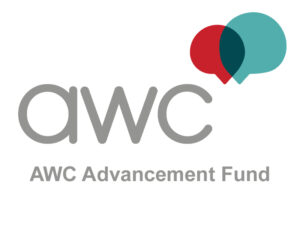Last year I stepped down from the President role in my local AWC chapter to past President. As I try to balance my new role as mother with my professional obligations, I wonder if I have been an effective leader for AWC this past year.
I’ve always heard that the key to strong leadership is effective communication. The way we communicate as a leader is important. The right tone, the right voice, the right body language -these elements are as important as the words we say, sometimes more. Having a leader who understands the principles of great communication can make the difference between a collaborative team and one that goes in circles. If we can get our communication right, we can build strong teams, be persuasive with clients and generally accelerate our business.
As a leader, I try to keep these core principles in mind in my day to day activities:
1. Customize your communication: Consistency is important, but that does not mean you should speak the same way to everyone. Customize your messages in light of what you know about the listener. Some people like details, some like the big picture, and some people want to hear only about the bottom line. Pay attention to their cues and tailor your communication accordingly.
2. Actively listen: Good listening is among the most important, and overlooked, principles of great communication. Do not zone out when someone else is speaking, and make sure that your own body language indicates your interest. Maintain eye contact and respond with small gestures that show you are listening and receiving the message. If you have any doubts about what you are hearing, try paraphrasing or repeating back what you have heard.
3. Let others finish: If you’re anxiously waiting for an opening so you can jump in and speak, you are not really listening. Train yourself not to think about interrupting other speakers, but instead to make sure they have had their say before you begin speaking.
4. Ask simple questions: You learn the most when you keep your questions simple and open-ended. Why, what, when, where, and how are still the gold standard. If you ask the right questions you will always find the right answers.
5. Be polite: Don’t check your phone or look at your watch when someone else is speaking. Give the respect of your undivided attention.
6. Use the power of “I” statements: Communication becomes more productive when you avoid stating your thoughts as facts. For example, instead of saying, “This project is a failure,” you might say, “I am very concerned about the sustainability of this project.” Try to avoid “you” statements (“You haven’t done anything”) that set up a cycle of judgment and defensiveness. Instead, say, “I can see there’s still a lot to be done.”
7. Pay attention to what your body’s saying: Some researchers find that body language makes up more than half of what you are communicating. Is your posture open and confident, or closed off?
8. Watch your tone: Make sure your tone matches what you are saying if you want your message to be clear.
9. Avoid sarcasm: It has a high failure rate – and even when it works, it mostly serves to build walls and destroy strong connections.
Keeping these principles in my head is difficult to do on a daily basis, but I find the longer I practice these, the easier they now come. I hope these strategies have been effective. Communicating with a clear purpose has been my goal…and hopefully, AWC has benefited.
About the Author

Julie is an Academic Advisor & Lecturer in the School of Communication at Illinois State University. Julie’s job duties focus on assisting Public Relations and Journalism students plan their coursework, instructing a public speaking course and pre-professional course for Mass Media students, and coordinating a summer study abroad experience in Paris, France. Julie was previously employed in marketing at YWCA McLean County where she developed her skillset in social media, public relations and special events. She holds a B.S. and a M.S. from the School of Communication and a M.S. from the Department of English at Illinois State University. Julie is a past-president of the Bloomington-Normal AWC chapter and currently serves as a board member at-large with AWC National.

